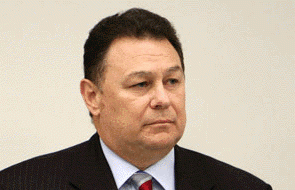
The High Court has declined an application by Blue Chip founder Mark Bryers to give evidence via video link at a High Court examination of his affairs.
Bryers was bankrupted on 1 October 2009 and would have been due for an automatic discharge in October 2012, but remained in bankruptcy after the Official Assignee objected to a discharge.
He will now be subjected to a public examination of his affairs in the High Court in November, before a decision is made on whether to end or continue his bankruptcy.
Bryers now lives in Australia and had applied to be allowed to give his evidence by video link rather than having to attend the examination in person.
In his application to give evidence by video, Bryers said his family had "great anxiety" about what would happen if he had to come back to this country.
"He says that in the past when he has been back in New Zealand he was subjected to unfavourable and defamatory media coverage and that led to him being subjected to considerable harassment by members of the public outside the Auckland courts and physical threats being made against him and his family on the internet," the High Court's decision on his application said.
He was fearful of the response of the public and the intimidation and harassment he would be subject to if he was required to return to New Zealand, it said.
However the Official Assignee objected to Bryers being allowed to give evidence via video link and asked the court to rule that he must attend his examination in person.
The Assignee submitted to the court that he had recently received confidential "informant material" about Bryers' conduct while bankrupt which concerned him.
In his decision, Associate Judge Jeremy Doogue said he did not believe an order should be made to allow Bryers to be examined by video link and declined Bryers' application.
The Blue Chip group, which specialised in tax-efficient schemes for investors to buy off-the-plan apartments, collapsed spectacularly in 2008 owing 2000 investors an estimated $84 million.
In 2010 the Serious Fraud Office ruled there was insufficient evidence for a criminal prosecution of Blue Chip. And last year Blue Chip's liquidators said they were unable to obtain litigation funding in order to continue with legal action against former directors and auditors of the company.
Also see this NZ Herald article.
1 Comments
He wouldn't be the first that our justice system has tried to lure back and stop-noting their passport while they're in the country. very common government trick. The very refusal of the judge to allow a reasonable video-link is suspicious enough... just what kind of evidence/prosecution does the court think it needs, that he appear in person?

We welcome your comments below. If you are not already registered, please register to comment
Remember we welcome robust, respectful and insightful debate. We don't welcome abusive or defamatory comments and will de-register those repeatedly making such comments. Our current comment policy is here.